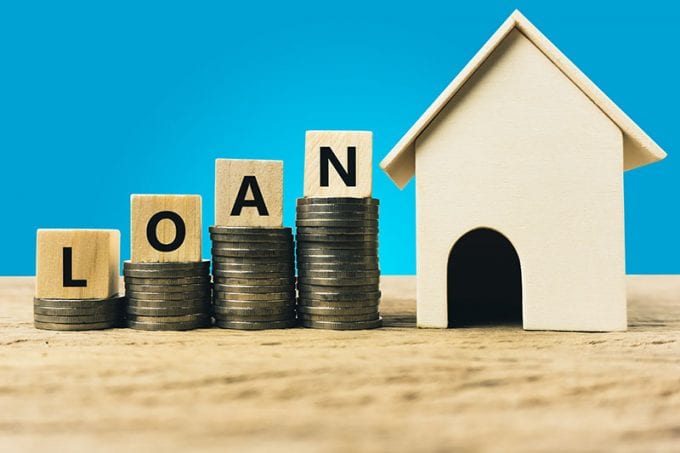You set out in search of buying a new house. Congratulations! It is one of the key things in everyone’s life and the big decision you have to make. However, you will probably use a mortgage loan or a similar type of credit. If you haven’t yet encountered a challenge called using a mortgage loan and would like to know more – you are in the right place. In our guide for 2025, we will try to outline some of the most common types of mortgage loans.
Making A Decision
Buying real estate or building a house is a unique event in the life of many people. Therefore, it is understandable why the whole process is accompanied by a positive euphoria. Everyone remembers the first day of moving into a new home, and everyone agrees that it is something very special.
The process of finding the ideal home is not easy, and during that process, you will encounter a series of questions. What do I need to know when buying a property? Where to look for an apartment or a house? What is the procedure for approving a housing loan? What are all the types of housing loans? What do I need from the documentation? What costs will I have?
Where To Start Looking For Real Estate?

Lots of ads, internet portals, newspapers, agency offers – all these are sources where you can find a property. It’s just a question of how much time you have to look for it and visit all those places. So, the best way to do that is to find a good agency that you trust.
They can do the job for you without spending a lot of your time, and you can be safe and protected. Agencies cooperate, exchange real estate, and have an insight into the offer on the market. At least that’s how it should be if they do their job professionally. However, make sure that the agency works legally and is licensed beforehand.
What Are The Types Of Mortgage Loans?
Although they all involve a mortgage, these loans also differ in some things. So, let’s see what the 4 of the typical mortgage loans are.
1. Conventional Type Of Mortgage Loans

A conventional mortgage loan is a credit for buying a real estate that is not under the government guarantee or insurance. We can make a difference between the two sorts of such mortgage loans: we have conforming but also non-conforming type. Taking such a loan implies the credit sum will fall inside the greatest cutoff points which are set up by government offices that back up most of the contracts in the U.S.
These loans are good for clients with good credit images, who have higher and stable salaries and provide their employment history – and their down payment should be minimum 3%. Then again, credits that don’t meet these rules are considered as non-conforming mortgage loans. One of the widely recognized types is the Jumbo mortgage loan. Usually, banks and financial institutions will expect you to pay private insurance on numerous types of conventional loans – especially if you pay under 20% deposit of the price of the property you are buying.
Reducing Costs
If you want to reduce costs, you can also try a gift deposit. Such a deposit can be deposited from the savings of one of your family members. However, you cannot deposit such a deposit from a third party loan, so you must keep this in mind. At this link, you can find out more information regarding the gift deposit. What is important to know is this: If money is given to you as a gift, you can use it for these purposes. However, if it is indicated that it is a loan – this scenario will not pass with banks and financial institutions.
2. Big Or Jumbo Mortgages

These types of house buying loans are those with non-conforming crediting limits. That implies the cost of the real estate is surpassing the limits that the government approved for credit. In 2018, the greatest accommodating credit limit for houses in the majority of the U.S. was above 450.00 dollars. In some of the significant expense zones, the value is even estimated to almost $680,000.
This loan type is becoming increasingly used and almost regular in greater expense zones. However, it requires much documentation if you want to qualify for it. That is why such loans are usually used by deeper-pocket buyers who are purchasing more luxury homes. Borrowers who are applying for this type of mortgage should have an excellent credit image and pretty high incomes. Some reputable banks or private lending funds may offer you some jumbo mortgages with rates that are very competitive.
3. Fixed- Rated Type Of Loans

Such mortgage contracts keep a similar financing cost during the continuity of repaying the credit, which implies your month to month contract installment consistently remains the equivalent. Fixed advances regularly come as far as 15 years, 20 years, or sometimes even up to thirty years. In case you want and intend to remain in your house, for example for possibly 7-10 – such a type of a mortgage contract will offer you quite a steadiness with your regularly scheduled installments.
4. Flexible Rate Contracts

Not at all like the solidness of fix-rated credits, adjustable mortgage rate contracts (so-called – ARMs) have some sort of flexible financing costs. It means that they can go higher or lower- according to the economic situation. Many of such financial products can even have a non-changeable financing cost for a couple of years – before the advance changes to a variable rate cost for the period of repayment.
Therefore, it advisable you search for such a loan that will show you precisely all your costs, or opt to a monthly repayment contract rate, where you will precisely know how much is the increase. Therefore, you won’t end up in a difficult situation when the credit resets.
5. Reverse Mortgages
A special type of loan for borrowers age 62 or older is the federally Home Equity Conversion Mortgage. Instead of making regular amortized payments back to the lender a reverse mortgage allows for you to borrow from your home’s equity and to further interest out until you later sell your home. Reverse mortgages were initially released signed into law by Ronald Reagan in 1989, 2025 has become a breakout year for reverse mortgage industry origination’s due to COVID-19 and in increasing age demographic. Compare today’s top reverse lenders at reversemortgagereviews.org
Conclusion
Mortgage loans are mainly long-term ones and intended for those who can offer real estate as collateral for their credit. These types of credits contain the so-called fiduciary transfer of ownership of the real estate in favor of a bank or some other financial institution. Keep in mind that the estimated value of the property is always higher than the required loan amount – and think carefully about whether you meet all the conditions.









